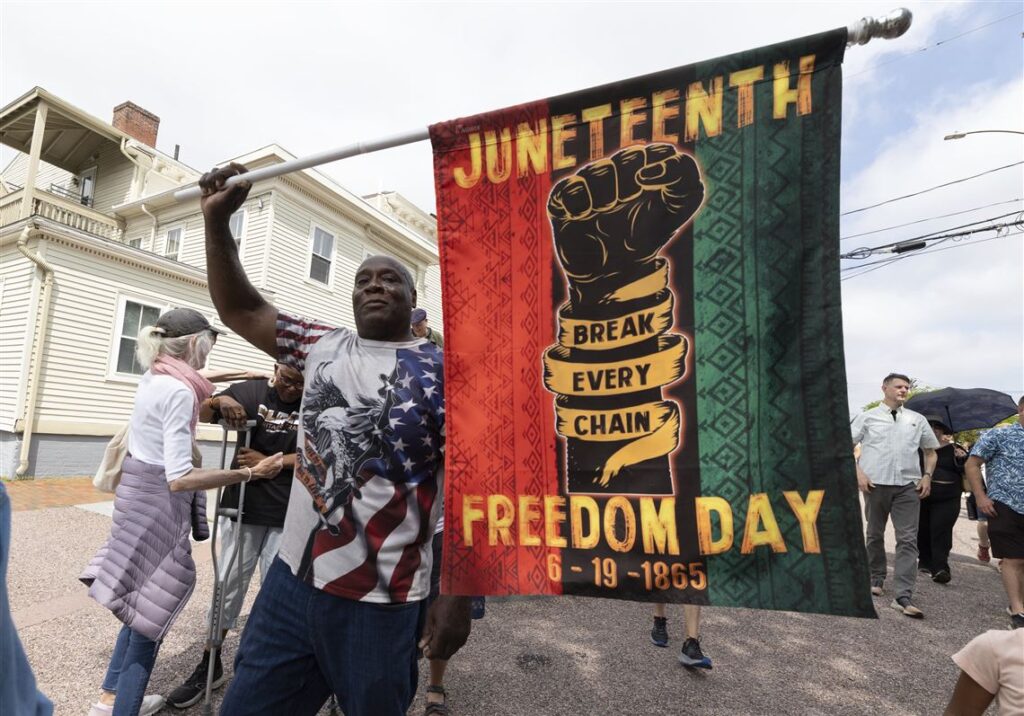The Legacy of Juneteenth and Its Federal Recognition
Juneteenth, a date that resonates with profound historical significance, marks the moment when the last enslaved African Americans in Texas received news of their emancipation. While this pivotal moment occurred on June 19, 1865, the acknowledgement of this day as a federal holiday was not realized until 2021. Author Clint Smith, known for his impactful book, How the Word Is Passed, delves into the intricate history surrounding Juneteenth and its journey to becoming a recognized holiday in the United States over 150 years later.
The Origins of Juneteenth
The significance of Juneteenth cannot be overstated. It emerged during a time of great upheaval and transformation in American society. Following the end of the Civil War, federal troops arrived in Galveston, Texas, to enforce the Emancipation Proclamation, which had declared the freedom of enslaved people two years earlier. On June 19, 1865, Union soldiers, led by Major General Gordon Granger, announced the enforcement of the new law, effectively liberating those who had remained in bondage.
This day became a symbol of freedom and empowerment for African Americans and has been celebrated annually since the late 1800s. Observances have included community gatherings, prayer services, and cultural events that honor Black heritage and history.
Why Did It Take So Long for Federal Recognition?
Despite its deep-rooted significance, the journey to Juneteenth’s recognition as a federal holiday was fraught with delays and complexities. Clint Smith emphasizes that the fight for acknowledgment has been reflective of broader struggles for racial justice in America. The historical narrative surrounding slavery, race, and liberation has often been overshadowed by more dominant cultural narratives.
It wasn’t until recent years, amidst a resurgence of social justice movements and a growing awareness of systemic racism, that Juneteenth gained significant traction as a focal point in discussions about reparative justice. The recognition of this day as a federal holiday is a testament to the ongoing journey toward equality and acknowledgment of past injustices.
The Impact of Federal Recognition
The establishment of Juneteenth as a federal holiday represents more than just a day on the calendar. It serves as a valuable opportunity for education and reflection regarding America’s history of slavery and its ongoing legacy. Schools, businesses, and community organizations are beginning to embrace this occasion to foster discussions around race and equity, making it a platform for healing and understanding.
Smith advocates that recognizing Juneteenth as a federal holiday can ignite a deeper understanding of the narrative that has shaped the nation. It acts as a call to action for Americans to confront the past and work towards a more equitable future.
Table: Key Milestones in Juneteenth History
| Year | Event |
|---|---|
| 1865 | Last enslaved individuals in Texas freed |
| 1866 | First celebration of Juneteenth |
| 1979 | Texas becomes the first state to declare Juneteenth a state holiday |
| 2021 | Juneteenth officially recognized as a federal holiday |
As Juneteenth continues to be embraced across the nation, it stands as a powerful reminder of the resilience of the human spirit and the ongoing fight for justice. The journey toward full recognition and understanding of the ramifications of slavery is far from over, but with each passing June 19th, the narrative grows richer and more relevant.

